Victor R. Fuchs Award for Lifetime Contributions to the Field of Health Economics

Jonathan Skinner
Jonathan Skinner is a health economist who leads several research projects funded by the National Institute on Aging (NIA). These are large-scale interdisciplinary collaborations at Dartmouth and partner institutions, drawing on Dartmouth’s comprehensive Medicare and Medicaid datasets. Skinner’s ongoing research focuses on studying the contribution of “high-tech” health care to cost growth, the diffusion of various types of medical innovations (beneficial and harmful), how provider networks affect technology diffusion, and whether high-quality health providers affect population-level health outcomes.
A member of the National Academy of Medicine, Dr. Skinner is also a research associate and director of the Aging Program at the National Bureau of Economic Research (NBER). He has taught in Dartmouth’s economics department since 1995, where he serves as the James O. Freedman Presidential Professor, and is a frequent contributor to the national conversation about health policy.
ASHEcon Medal
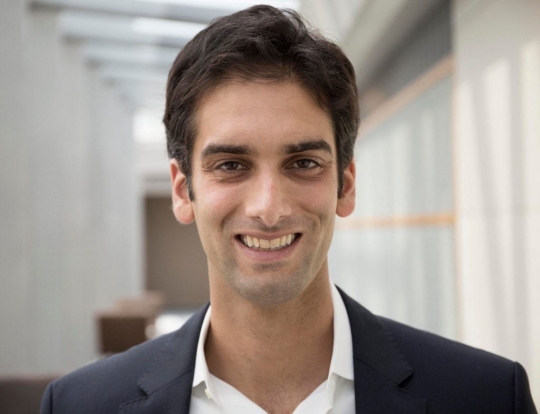
Neale Mahoney
Neale Mahoney is Professor of Economics at Stanford University. He is the George P. Shultz Fellow at SIEPR, a Research Associate at the National Bureau of Economic Research, and an Affiliated Professor at J-PAL. Mahoney is an applied micro-economist with an interest in health care and consumer financial markets. He was named a Sloan Research Fellow in 2016 and is a co-editor of American Economic Journal: Applied Economics.
Before joining Stanford, Mahoney was Professor of Economics and David G. Booth Faculty Fellow at the University of Chicago Booth School of Business. He was also a Robert Wood Johnson Fellow in health policy research at Harvard University and worked for the Obama Administration on health care reform. Mahoney received a PhD and MA in economics from Stanford University and an ScB in applied mathematics-economics from Brown University.
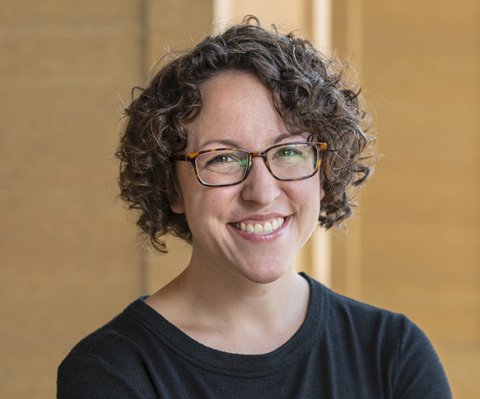
Heidi Williams
Heidi Williams is the Charles R. Schwab Professor of Economics at Stanford University; Professor, by courtesy, of Law at Stanford Law School; and a Senior Fellow at the Stanford Institute for Economic Policy Research (SIEPR). She is a Research Associate at the National Bureau of Economic Research (NBER), where she is co-director of the Health Care Program, and is the Editor of the Journal of Economic Perspectives. Her research agenda focuses on investigating the causes and consequences of technological change, with a particular focus on health care markets. Heidi received her AB in mathematics from Dartmouth College in 2003, her MSc in development economics from Oxford University in 2004, and her PhD in economics from Harvard in 2010. She is the recipient of a MacArthur Foundation Fellowship (2015) as well as an Alfred P. Sloan Research Fellowship (2015), and has also been recognized for her undergraduate teaching, graduate teaching, and graduate advising..
The Willard G. Manning Memorial Award for the Best Research in Health Econometrics
Does Diversity Matter for Health? Experimental Evidence from Oakland
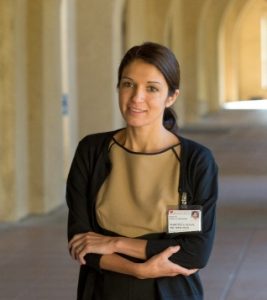
Marcella Alsan
Marcella Alsan is a Professor of Public Policy at Harvard Kennedy School. Alsan received a BA from Harvard University, a master’s in public health from Harvard School of Public Health, a MD from Loyola University, and a PhD in Economics from Harvard University. Alsan trained at Brigham and Women’s Hospital Hiatt Global Health Equity Residency Fellowship – then combined the PhD with an Infectious Disease Fellowship at Massachusetts General Hospital. Prior to returning to Harvard she was on faculty at Stanford. She is an applied microeconomist studying health inequality.
Some recent papers include “Does Diversity Matter for Health: Experimental Evidence from Oakland” and “Tuskegee and the Health of Black Men” – published in the American Economic Review and The Quarterly Journal of Economics, respectively. These papers have been cited in the New York Times and other major media outlets and findings have been presented to the Association of American Medical Colleges and the Centers for Disease Control and Prevention. She is currently on the Board of Editors for Science Magazine, Co-Editor of the Journal of Health Economics and Co-Chair of the Health Care Delivery Initiative of Abdul Latif Jameel Poverty Action Lab based out of MIT. She is the co-recipient of the 2019 Arrow Award for Best Paper in Health Economics.

Owen Garrick
Owen Garrick, MD MBA is Vice President and head of Clinical Trial Delivery at CVS Health. He is leading the effort to build the largest and most diverse decentralized clinical research network in the United States. His team is collectively responsible for planning, solutioning, executing, and close-out of clinical studies. Dr. Garrick oversees all operational aspects of clinical trials and interacts with the Quality function to insure research participant protections. Additionally, he reviews all recruitment and real world evidence studies conducted by the Clinical Trial Services business unit for scientific merit and patient safety.
Prior to CVS Health Dr. Garrick was President & CEO of Bridge Clinical Research, (BCR), a global clinical research and health communications firm focused on drug development, scientific advancement and patient engagement. Dr. Garrick leads the Clinical Trials, Research Analytics, Health Services Research and Healthcare Communications business units. He helped launch multiple collaborative efforts in advancing precision medicine research. He served as an advisor to the Stanford Precision Health for Ethnic and Racial Equity Center (SPHERE) which is one of five NIH centers focused on precision-medicine tools to improve the health of underserved ethnic and racial groups. Dr. Garrick was a Stanford sub-awardee for a project specifically focused on the willingness of patients with sickle cell disease to participate in precision medicine research.
Dr. Garrick is a nationally recognized leader in research and research ethics. He is a member of the National Genome Research Institute’s (NHGRI) Genomic Education of Healthcare Professionals Partnership. He was appointed to a term as a member of the Department of Health and Human Services Secretary’s Advisory Council on Human Research Protections (SACHRP) from 2012-2016 where he co-authored industry advisory documents around biospecimen data security and patient engagement in research. Dr. Garrick currently serves on the Executive Committee of Professional Responsibility in Medicine & Research (PRIMR) and was formerly a member of Quorum Review’s IRB. Dr. Garrick earned his MD from Yale School of Medicine and his MBA from Wharton School of Business. He holds an AB in Psychology from Princeton University.
Grant Graziani

Dissecting racial bias in an algorithm used to manage the health of populations
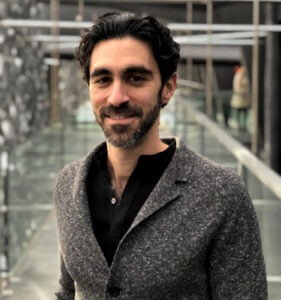
Ziad Obermeyer
Ziad Obermeyer is the Blue Cross of California Distinguished Associate Professor of Health Policy and Management at the UC Berkeley School of Public Health, where he does research at the intersection of machine learning, medicine, and health policy. He previously was an Assistant Professor at Harvard Medical School, where he received the Early Independence Award, the National Institutes of Health’s most prestigious award for exceptional junior scientists. He continues to practice emergency medicine in underserved parts of the US. Prior to his career in medicine, he worked as a consultant to pharmaceutical and global health clients at McKinsey & Co. in New Jersey, Geneva, and Tokyo.

Brian Powers
Brian Powers currently serves as the Deputy Chief Medical Officer for Humana. Dr. Powers previously worked as the Director of Population Health Strategy and Analytics for CareMore and Aspire Health at Anthem. Prior to that Brian served as Delivery Innovation Lead at CareMore Health and as a Clinical Fellow on Care Delivery Innovation and Strategic Investment at the Health Policy Commission. He previously served as Senior Program Assistant at the National Academy of Medicine. In this role, he was part of the Institute of Medicine’s (IOM) Roundtable on Value & Science-Driven Health Care, leading several projects including the CEO Checklist for High-Value Health Care and Best Care at Lower Cost: The Path to Continuously Learning Health Care in America. Brian has continued to work as a practicing internist at the Brigham and Women’s Hospital and at Atrius Health. He received an A.B. in History from Bowdoin College, and his MBA and M.D. from Harvard Business School.

Christine Vogeli
Dr. Vogeli is a health services researcher and the Director of Evaluation and Research for the Center of Population Health, Partners Healthcare. Her principal interests include primary care, disparities and healthcare quality. As an embedded investigator, she is involved in the design, implementation and evaluation of care delivery innovations. She is an expert in large administrative databases, including claims, financial and clinical data, and the use of these data to prospectively identify patients, and measure patient outcomes. Dr. Vogeli has also investigated the validity of physician and hospital performance metrics.
Dr. Vogeli played a leading role in quality assessment projects within Massachusetts General Hospital and the Partners Healthcare System. She developed the Partners Quality Report, first launched in fall 2000, and developed an outcomes reporting system for Partners Psychiatry and Mental Health. Since 2012 has been actively involved in efforts to design and evaluate population health programs for Medicare, Medicaid and Commercial risk patients across Partners Healthcare. She has designed algorithms to identify complex, rising risk patients, and is working to expand these efforts to incorporate psycho-social and clinical data. She is involved in numerous efforts to evaluate the impact of delivery system redesigns on patterns of health care utilization, quality of care, and health care costs. Dr. Vogeli has collaborated on research grants funded by PCORI, The Commonwealth Fund, The Robert Wood Johnson Foundation, the Agency for Healthcare Research and Quality, and others.
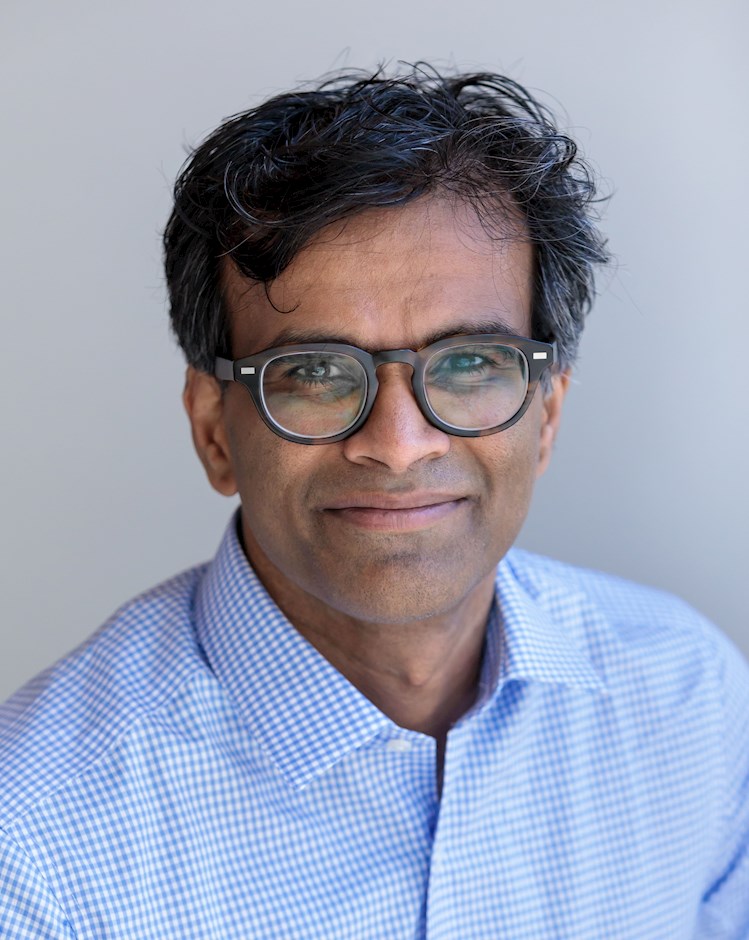
Sendhil Mullainathan
Sendhil Mullainathan is the Roman Family University Professor of Computation and Behavioral Science at Chicago Booth. His current research uses machine learning to understand complex problems in human behavior, social policy, and especially medicine, where computational techniques have the potential to uncover biomedical insights from large-scale health data. He currently teaches a course on Artificial Intelligence.
In past work he has combined insights from economics and behavioral science with causal inference tools—lab, field, and natural experiments—to study social problems such as discrimination and poverty. Papers include: the impact of poverty on mental bandwidth; how algorithms can improve on judicial decision-making; whether CEO pay is excessive; using fictitious resumes to measure discrimination; showing that higher cigarette taxes makes smokers happier; and modeling how competition affects media bias.
Mullainathan enjoys writing. He recently co-authored Scarcity: Why Having too Little Means so Much and writes regularly for the New York Times. Additionally, his research has appeared in a variety of publications including the Quarterly Journal of Economics, Science, American Economic Review, Psychological Science, the British Medical Journal, and Management Science.
Student Paper Award

Emily Cuddy
COMPETITION AND COLLUSION IN THE US GENERIC DRUG MARKET
I am a Ph.D. Candidate in the Department of Economics at Princeton University. I am primarily interested in health economics and industrial organization.
I will be joining the Department of Economics at Duke University after a postdoctoral fellowship at the Kellogg School of Management at Northwestern University.

Jonathan Holmes
Does Medicaid Make Private Health Insurance Cheaper?
I am a Ph.D. candidate in economics at the University of California, Berkeley. My research interests are in public economics and health economics. Prior to Berkeley, I was a research fellow at the Kennedy School of Government at Harvard University. I have a Master of Arts from Queen’s University and a Bachelor of Social Sciences from the University of Ottawa, where I was a Loran Scholar.
I will be joining the University of Ottawa Department of Economics in 2022 after a one-year post-doc at the National Bureau of Economic Research.
